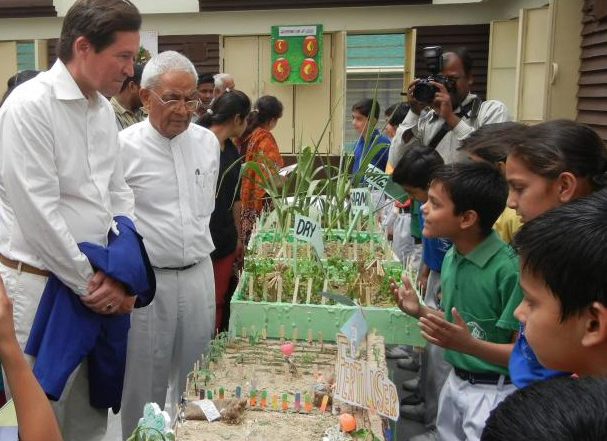
The ASPnet Strategy for 2014-2021, "Global Network of Schools addressing Global Challenges", identifies Education for Sustainable Development as one of its two priorities. The 2030 Agenda specifically highlights how important it is for all learners to "acquire the knowledge and skills needed to promote sustainable development, including, among others, through education for sustainable development and sustainable lifestyles, […]" (Target 4.7 of the 2030 Sustainable Development Agenda).
Education for Sustainable Development (ESD) is about enabling learners to address present and future global challenges constructively and creatively and to create more sustainable and resilient societies.
By acquiring the values, attitudes, skills and knowledge that are needed to contribute to sustainable development, learners can take informed decisions and responsible actions and become agents of change in their schools, communities and societies.
The whole-school approach to transforming learning and training environments, as laid down in the Global Action Programme on ESD, is guiding many ASPnet schools in their ESD activities.
This approach means that schools endeavour to integrate local and global sustainability issues into the curriculum, while reinforcing interactive, participatory teaching and learning that foster critical thinking and bring about changes in attitudes. The whole campus is used as a learning environment; the school is run in an environmentally-friendly manner and its work is linked with sustainable development activities in the local community.
For more information, visit the UNESCO website on ESD
Teachers' Resources: